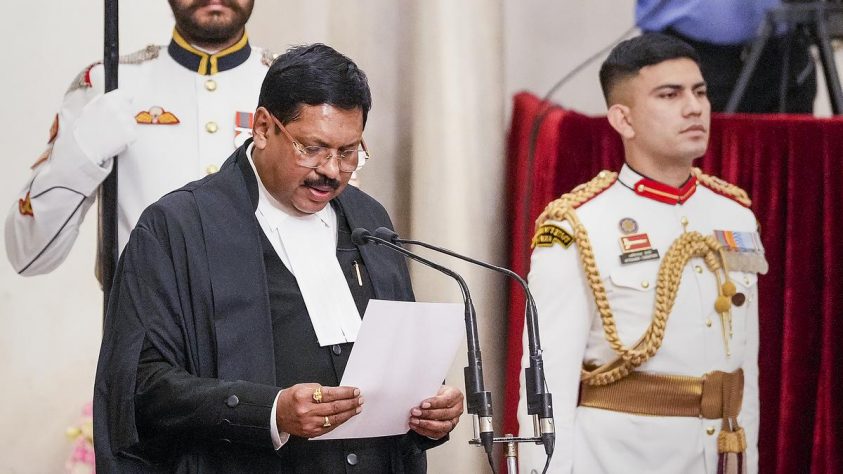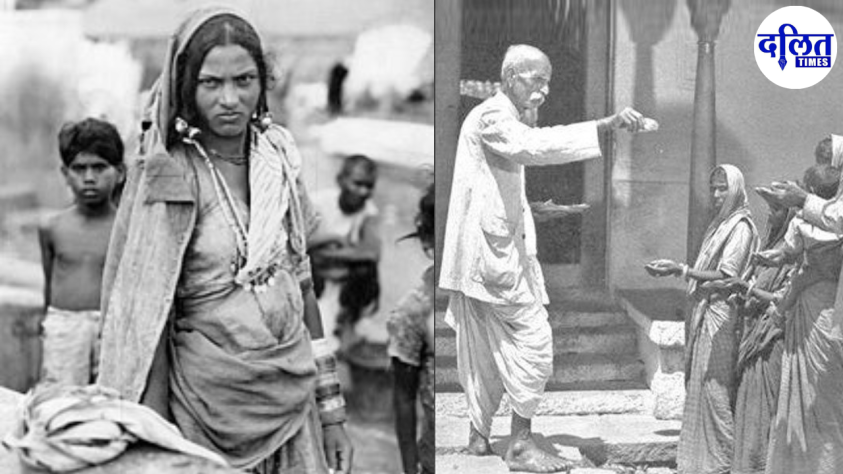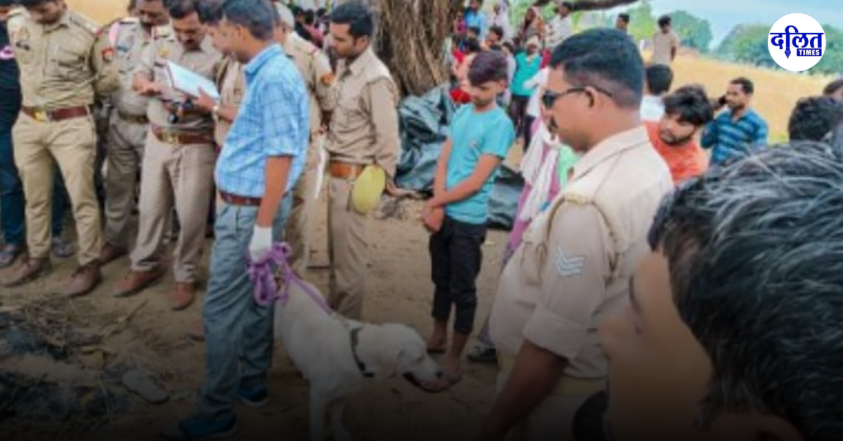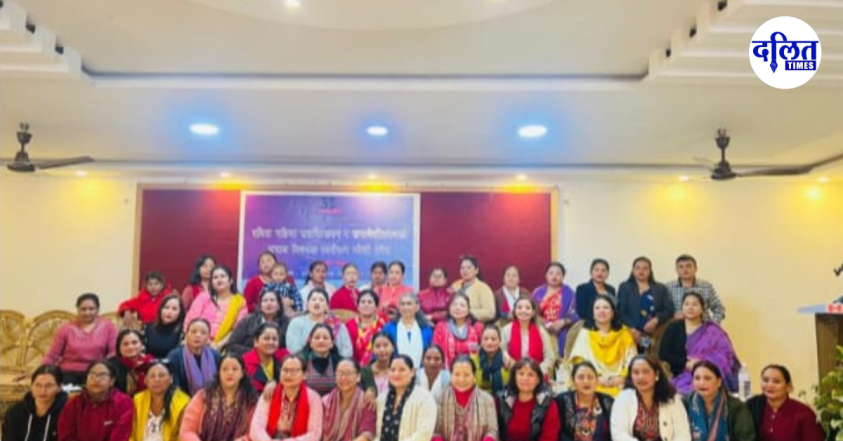(Justice B.R. Gavai’s Felicitation in Mumbai Highlights Not Just Institutional Disrespect—but the Unequal Treatment of a Dalit Chief Justice – CJI B.R Gavai reassert constitutional supremacy- flag disrespect by executive functionaries, and call for mutual institutional regard- The Indian Constitution is not just a document—it is a covenant among institutions. When one falters in showing respect to another, the entire architecture is shaken. CJI Gavai and remarks are a call to restore that balance—rooted in the Constitution, not in personal ego.)
What at first appeared as a protocol lapse soon emerged as something far more insidious—a deliberate act of caste-based discrimination. In a strongly worded yet constitutionally grounded address at a felicitation event organised by the Bar Council of Maharashtra and Goa at the historic Darbar Hall in Mumbai, Chief Justice of India Justice B.R. Gavai underlined a foundational truth often lost in political theatre: “Supremacy does not lie with the judiciary, the executive, or the Parliament—but with the Constitution of India.”
Justice Gavai was responding to the question of which institution among the judiciary, executive, or legislature holds primacy in a democratic setup. Quoting his recent remarks, he said, “When I was recently asked about whether judiciary is supreme or executive is supreme, I had said that neither judiciary, nor executive, nor the Parliament is supreme. It is the Constitution of India which is supreme, and all the three wings must work as per the Constitution.”
Also Read : Barred at the Threshold: Temple Entry Denial to Dalit Youth in Karnataka Exposes Persistent Untouchability
This assertion reiterates the constitutional principle of separation of powers, a doctrine that forms part of the basic structure of the Indian Constitution, as affirmed by the Supreme Court. It is not a matter of competition between institutions, but of coordinated coexistence governed by constitutional fidelity.
A Question of Respect, Not Protocol
The event, however, took a sharper tone when it was revealed that none of the senior-most executive functionaries—the Chief Secretary, the Director General of Police, or the Mumbai Police Commissioner were present to receive the CJI during his first official visit to Maharashtra in his current capacity.
CJI Gavai expressed measured but unmistakable displeasure: “It is not about protocol, but about mutual respect between organs of the state. If it were someone else in my place, then the provisions of Article 142 could have been invoked.”
Article 142 of the Constitution empowers the Supreme Court to pass any order necessary to do “complete justice” in any matter before it. Though the CJI did not elaborate, the reference signalled the seriousness of institutional disregard.
Not Just a Protocol Violation—A Caste Marker
Justice Gavai, the first Dalit judge from Maharashtra to ascend to the Supreme Court and potentially the first Dalit Chief Justice of India, has faced systemic barriers. But what transpired in Mumbai was not mere bureaucratic oversight—it was an institutional snub targeted at his social location.
No former Chief Justices or senior upper-caste judges have been subjected to such visible disrespect during official visits. This pattern cannot be dismissed as coincidence. In a state where bureaucratic positions remain heavily dominated by dominant castes, the absence of any senior executive presence at a high-profile judicial function speaks volumes.
Caste in the Courtroom: The Silent Question
In India, where dominant caste hegemony extends deeply into the judiciary, bureaucracy, and legislature, Dalit representation in higher constitutional posts is still rare—and when it does occur, it is often met with veiled hostility.
Justice Gavai’s marginalisation at the state level raises an uncomfortable yet necessary question: Would this have happened to a Savarna Chief Justice? The answer, as history shows, is no. Dalit presence in elite institutions is still seen as an aberration, not the norm—and this incident lays bare the entrenched casteism that pervades even “neutral” bureaucratic systems.
Constitutional Supremacy Cannot Be Caste-Blind
Justice Gavai’s assertion that “the Constitution is supreme” is not just a legal truism—it is an indictment of a system where caste continues to determine dignity, recognition, and access.

Dr. B.R. Ambedkar, the architect of our Constitution, warned that social democracy must precede political democracy. What occurred in Mumbai is proof that constitutional office alone cannot guarantee social respect unless caste hierarchies are dismantled at their roots.
If India truly believes in the supremacy of the Constitution, then its judges, especially from historically oppressed communities, must be treated with the same respect afforded to their upper-caste counterparts. Anything less is not just a breach of protocol—it is a betrayal of the republic.
Vice President Joins the Concern
Honorable Vice President Jagdeep Dhankhar came out in support of the judiciary, stating that the CJI’s comment was not about personal protocol but a principled reminder that all organs of democracy—executive, legislature, and judiciary must uphold mutual respect.
“The judiciary is not asking for special treatment. It is asking for recognition as a co-equal pillar of democracy. This is not hierarchy but harmony,” said the Vice President.
Vice-president has previously emphasized the need for constitutional boundaries to be respected and has called out instances where the judiciary and legislature have clashed over matters of jurisdiction or authority. His support for the judiciary in this case aligns with a broader institutional concern over executive overreach and administrative apathy.
Also Read :Caste After Conversion: Judicial Divergence on SC Status Across Indian Courts
Institutional Morality in a Time of Erosion
This incident comes at a time when India’s democratic institutions are increasingly tested. From bureaucratic defiance to politicisation of administrative posts, the erosion of institutional courtesy and respect often signals deeper structural malaise.
The Chief Justice’s call for dignity in interaction is not merely symbolic—it touches upon the constitutional morality that Ambedkar emphasized. Institutions must not just function—they must do so with restraint, responsibility, and regard for each other.
The Constitution as Compass
Justice B.R Gavai reminded the audience, it is the Constitution that is supreme, and not the individuals or offices holding temporary authority. The judiciary’s reminder to the executive and the political class is thus not a demand for protocol, but a plea for constitutional integrity. In times of growing institutional friction, such reminders serve not as confrontations, but as course corrections.
Adv.Bindu Ammini/Dalit Feminist



